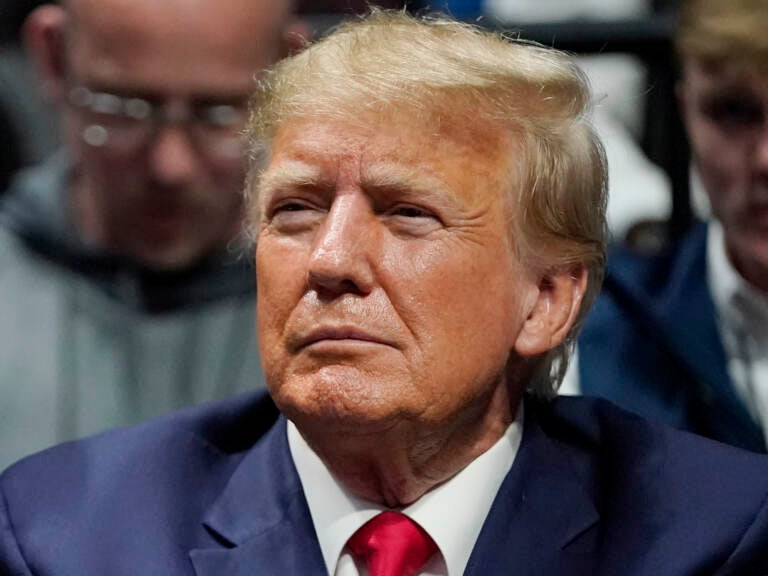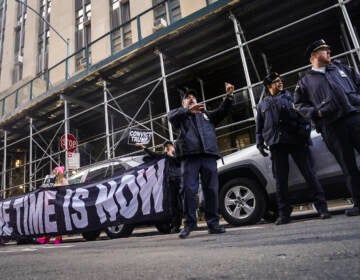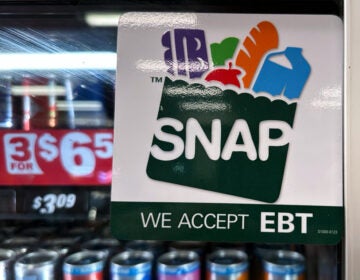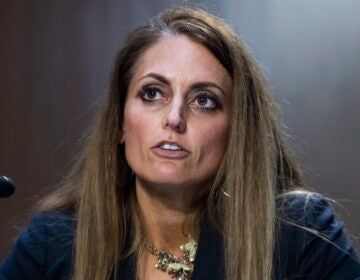Every aspect of Trump indictment process will break new ground, Temple law expert says
The process will likely be lengthy and require special procedures for the first-of-its-kind prosecution of a former president.
Listen 1:05
Former President Donald Trump called on his supporters to protest over his social media platform Truth Social last Saturday claiming he will be arrested on bogus charges. (Sue Ogrocki/AP)
The indictment of a former president has never happened before.
That means the trial of Donald Trump will create a number of potentially thorny legal issues.
Temple University Law Professor Craig Green said the indictment of Donald Trump on criminal charges will be a challenge for the courts.
“Every layer of the politics is completely unprecedented. And it is a real test for the legal system, whether ordinary legal processes can move forward in the presence of such extraordinary outside circumstances,” Green said.
Just the first step, the arraignment procedure, is more complicated because the former resident is under Secret Service protection.
Green said it will likely include an entrance to the courthouse out of public view, followed by special treatment before seeing a judge to enter his not guilty plea.
“Oftentimes, there’s a little pretrial detention that will probably happen, segregated from other pretrial detainees, sort of a particular room or a particular wing or even a cell, probably a room.”
Green also refuted Florida Gov. DeSantis’ claims that he would not take part in extraditing Trump to New York.
“Governor DeSantis says that he wouldn’t participate in extraditing Trump. Well, that’s very easy to say once it’s clear that Trump is actually coming to New York, because actually the federal Constitution would have required — and federal courts would have ordered — Governor DeSantis to participate. That’s not a discretionary governor’s decision whether someone can seek refuge in another state.”
The length of the trial will also be a problem. The wheels of justice will probably grind slowly with no final determination before the Republicans choose a presidential candidate next year, Green said.
Since these are state charges, even if Trump were re-elected, he would not be able to pardon himself, since presidential pardon powers only apply to federal offenses.
WHYY is your source for fact-based, in-depth journalism and information. As a nonprofit organization, we rely on financial support from readers like you. Please give today.






